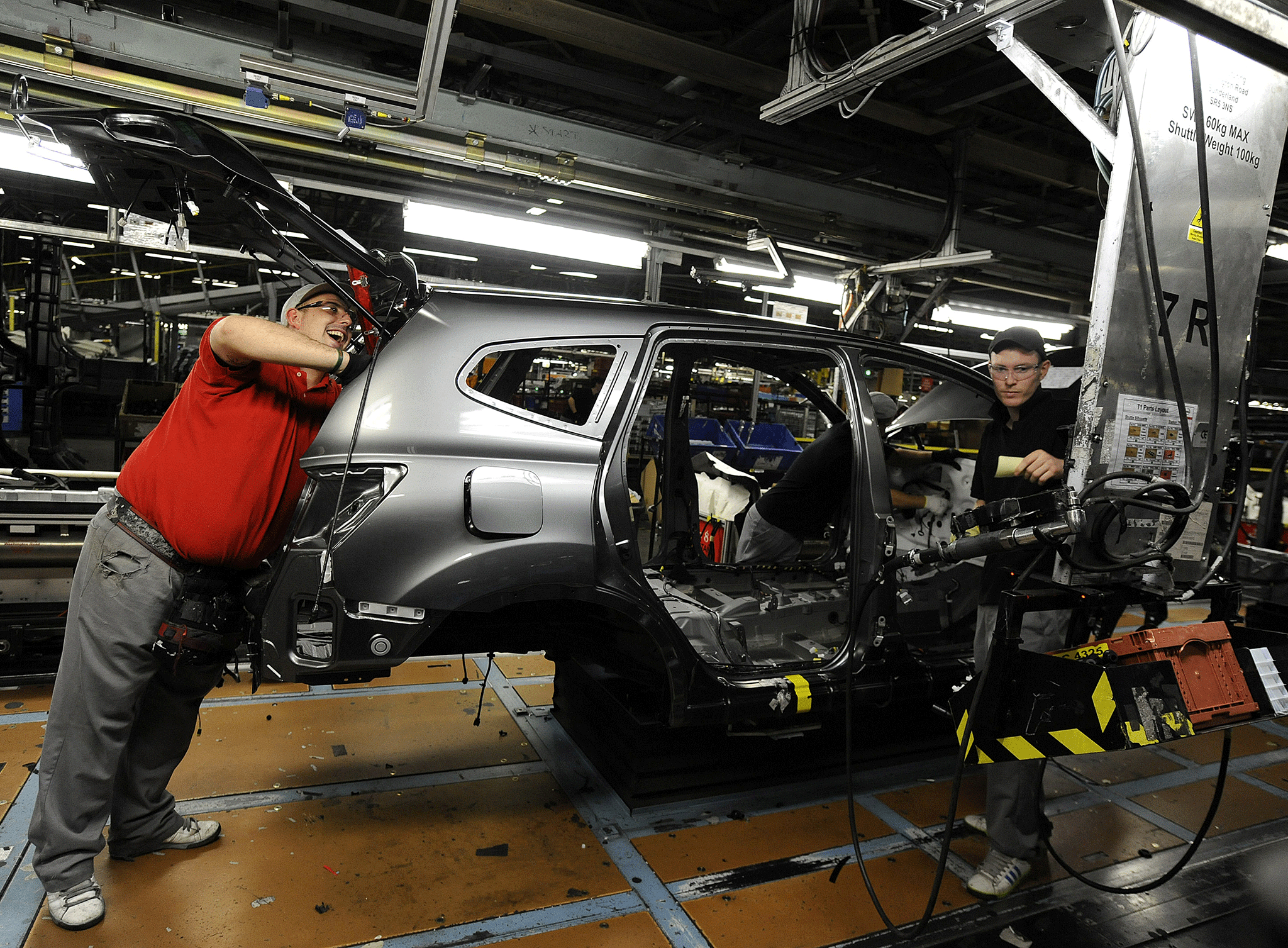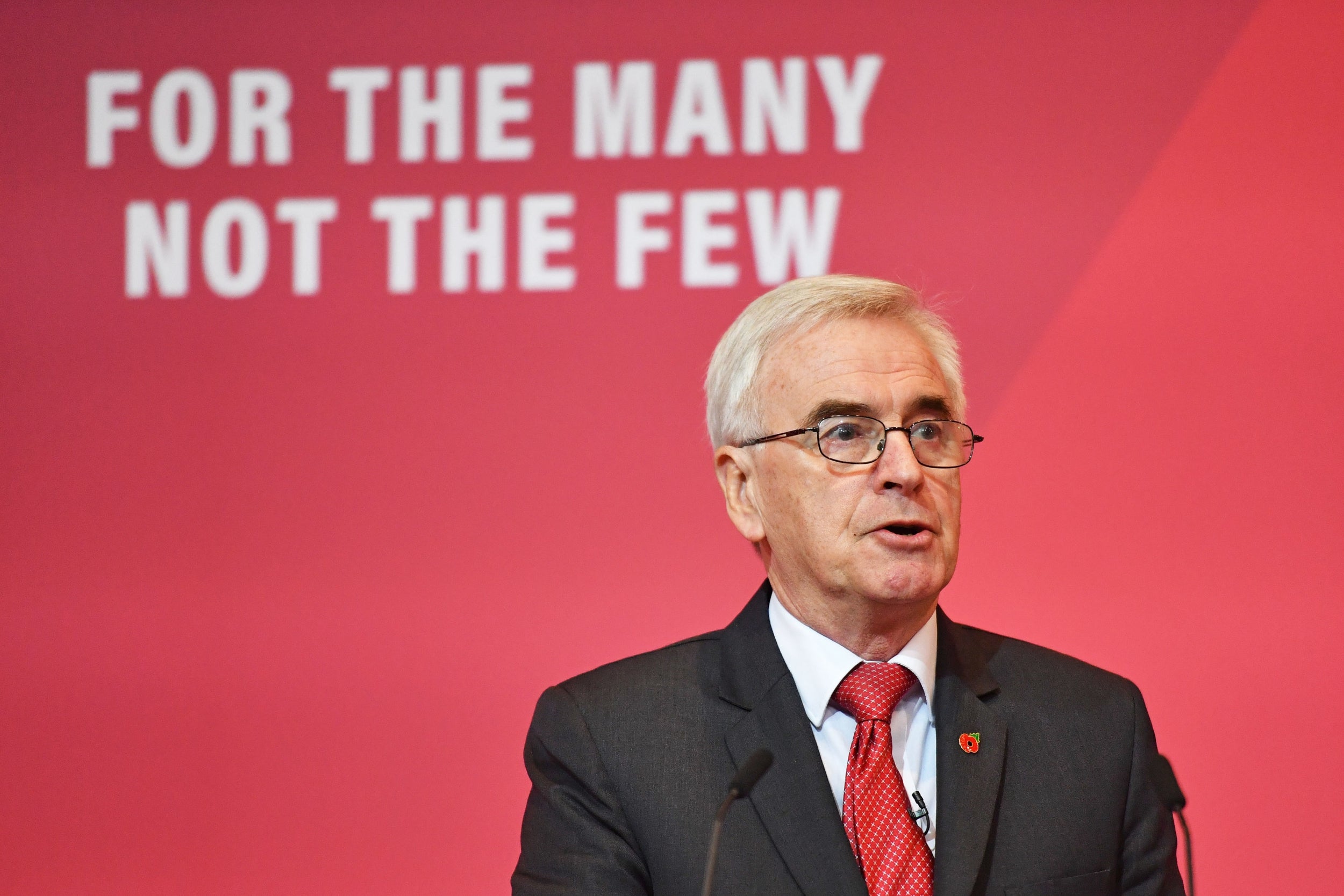Your support helps us to tell the story
From reproductive rights to climate change to Big Tech, The Independent is on the ground when the story is developing. Whether it's investigating the financials of Elon Musk's pro-Trump PAC or producing our latest documentary, 'The A Word', which shines a light on the American women fighting for reproductive rights, we know how important it is to parse out the facts from the messaging.
At such a critical moment in US history, we need reporters on the ground. Your donation allows us to keep sending journalists to speak to both sides of the story.
The Independent is trusted by Americans across the entire political spectrum. And unlike many other quality news outlets, we choose not to lock Americans out of our reporting and analysis with paywalls. We believe quality journalism should be available to everyone, paid for by those who can afford it.
Your support makes all the difference.Labour’s plans to democratise companies and give more power to workers and consumers will help raise productivity in the economy and boost investment, John McDonnell has argued.
The shadow chancellor said “structural changes in the economy” included in the Labour manifesto would make firms think more long-term and invest for the future because the changes would mean “everyone has a vested interest in the operation of their company”.
The opposition’s manifesto says businesses would be required to have one-third of boards composed of elected “worker-directors” drawn from staff, sitting alongside shareholders. It also wants to lift restrictions on trade unions imposed in the 1980s and bring back national collective bargaining for wages.
“On those boards of those corporations now, a third of those boards will be workers themselves. Within that company they’ll have trade union rights restored, and sectoral collective bargaining to protect their wages,” Mr McDonnell told BBC Radio 4’s Today programme
“On the supervisory boards of those companies, or the unitary board, whichever the company opts for, there will be consumers represented as well. This is the point I’m making: we’re democratising our economy.”
Citing examples from across the Channel, Mr McDonnell continued: “Because we’re democratising the way these corporations work and are more accountable, they will actually invest in their companies. Instead of being driven by short-term profiteering and shareholder interest only, they will think for the long term, invest and grow the economy.
“Where you have more accountable boards – for example across Europe many companies have workers on the boards – you’ll see that they have longer-term decision-making and not this short-term thinking, which has ended up, unfortunately, with the extreme inequality that you have in our society but also the lack of stable investment that we need.”
Countries such as Germany and Sweden have long operated a system of “codetermination” where workers sit on company boards alongside shareholders. Under the German Mitbestimmung system half of a company’s supervisory board must be composed of elected workers if it has more than 2,000 employees; for firms with 500-2000 workers the proportion is one-third, as in Labour’s proposal.

The UK government toyed with introducing a similar and more far-reaching system of industrial democracy in the 1970s, but it was shelved before it could be implemented.
When it comes to trade union collective bargaining, most countries in Europe have some form of national collective bargaining, with about 60 per cent of all employees in the EU covered to some degree. Countries with collective bargaining coverage of more than 80 per cent include France, the Netherlands, Belgium, Austria, Finland, Sweden, Italy, and Denmark: the UK currently has by far the lowest rate in western Europe, at 29 per cent.
The British economy has suffered from historically very weak productivity growth in the decade since the global financial crisis in 2008. In the 1960s the UK once had the best productivity in Europe, but it is now near the bottom of the G7 league table in terms of output per hour worked.
Since the late 1960s, the UK’s traditional competitors Germany and France have pulled further and further ahead in terms of output per hour worked.
But the Conservatives have criticised Labour’s plans. Michael Gove said the reforms would “effectively shut down Britain, put people’s livelihoods at stake” and that the UK would be subject to “the whims of Corbyn’s union baron bankrollers”.

Join our commenting forum
Join thought-provoking conversations, follow other Independent readers and see their replies
Comments